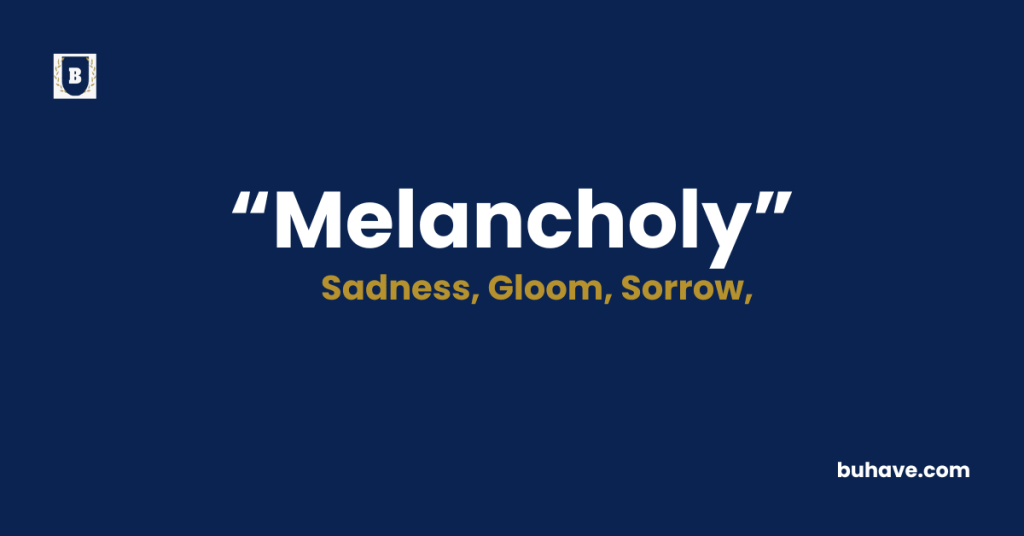The word ‘Melancholy’ (Noun) expresses a deep, often lingering feeling of sadness or reflective sorrow, sometimes without a clear cause. In this guide, you’ll explore its full meaning, definition, origin, examples, related terms, and more.
Melancholy Explained in Depth
A complete and detailed guide to the word ‘Melancholy’ including meaning, definition, examples, etymology, synonyms, and antonyms.
Meanings of Melancholy
‘Melancholy’ refers to a quiet, thoughtful sadness or emotional heaviness. It can be a gentle, poetic sadness or a more persistent emotional gloom.
Definition
‘Melancholy’ is defined as a feeling of deep sadness or sorrow, often characterized by reflective or pensive moods. It can describe both a state of mind and a tone in speech or writing.
Etymology
The word “Melancholy” originates from the Greek word melankholia, meaning “black bile”—a bodily fluid once believed to cause sadness. It entered English via Latin melancholia and Old French melancholie.
Example Sentences
- There was a quiet melancholy in her voice as she recalled the past.
- The rainy day matched his melancholy mood perfectly.
- She sat alone with a look of gentle melancholy on her face.
Melancholy Synonyms
- Sadness
- Sorrow
- Gloom
- Despondency
- Depression
- Blue mood
- Heartache
- Grief
- Nostalgia
- Pensiveness
Melancholy Antonyms
FAQs about Melancholy
Here are some frequently asked questions (FAQs) about the word “Melancholy”
- What does “melancholy” actually mean?
Melancholy refers to a thoughtful, deep sadness that may not have an obvious reason but feels emotionally heavy or reflective. - Is melancholy the same as depression?
Not quite. Melancholy is a softer, more poetic sadness, while depression is a clinical condition that affects mood, behavior, and physical health. - Can melancholy be beautiful?
Yes, many people find a kind of beauty or emotional depth in melancholy, especially in art, music, or memories. - Is melancholy always negative?
Not necessarily. While it’s rooted in sadness, it can also bring introspection, emotional awareness, or creative inspiration. - How is melancholy used in literature?
In literature, melancholy often sets a tone of wistfulness, nostalgia, or romantic sadness in characters or storytelling.

















